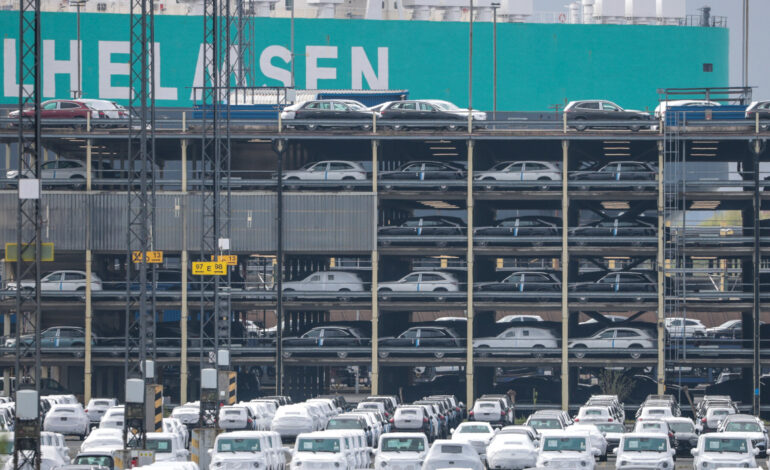Tariffs Slash Billions from Global Car Manufacturers’ Profits

Car manufacturers are currently absorbing the financial impact of trade tariffs, which have resulted in significant losses amounting to billions of dollars. This situation unfolds against a backdrop of escalating economic pressures and shifts in global trade dynamics.
Tariffs imposed primarily by the European Union on vehicles imported from the United States have affected various manufacturers, including premium brands like Mercedes-Benz. The port of Bremerhaven, Germany, has become a focal point for these changes, as it is a major entry point for imported vehicles.
According to industry analysts, these tariffs have reduced profitability for carmakers. Specifically, it is estimated that the tariffs have cut profits by up to $1 billion annually for the affected companies. The automotive sector, already grappling with supply chain issues and rising production costs, now faces additional hurdles due to these trade measures.
Impact on Automotive Manufacturers
The financial burden resulting from tariffs is not uniform across the industry. Luxury car manufacturers like Mercedes-Benz and others are particularly vulnerable, as their pricing strategies leave little room for absorbing additional costs. As a result, these companies are compelled to evaluate their pricing structures and supply chains to mitigate the negative impact.
Trade policies have created a challenging environment for manufacturers aiming to maintain their competitive edge. While some companies may choose to pass on costs to consumers, others may opt to absorb the expenses in hopes of retaining market share. In either scenario, the long-term implications for consumer pricing and brand loyalty remain uncertain.
Automakers are also considering shifting production locations to minimize tariff impacts. Such moves could lead to significant changes in manufacturing strategies and employment patterns within the industry. For example, relocating production facilities to countries with more favorable trade agreements may become a viable option for some companies.
Future Outlook
As the global economy continues to evolve, the automotive sector will need to adapt to these new realities. Industry experts emphasize that proactive strategies will be essential for navigating the complexities of international trade. This includes not only adjusting to tariffs but also addressing broader economic factors such as fluctuating demand and technological advancements.
Looking ahead, the landscape of the automotive industry may shift dramatically as manufacturers respond to these challenges. The stakes are high, and the decisions made now will likely shape the future of car production and sales for years to come. The ability of these companies to innovate and adapt will be crucial in maintaining a sustainable business model amid ongoing economic changes.






